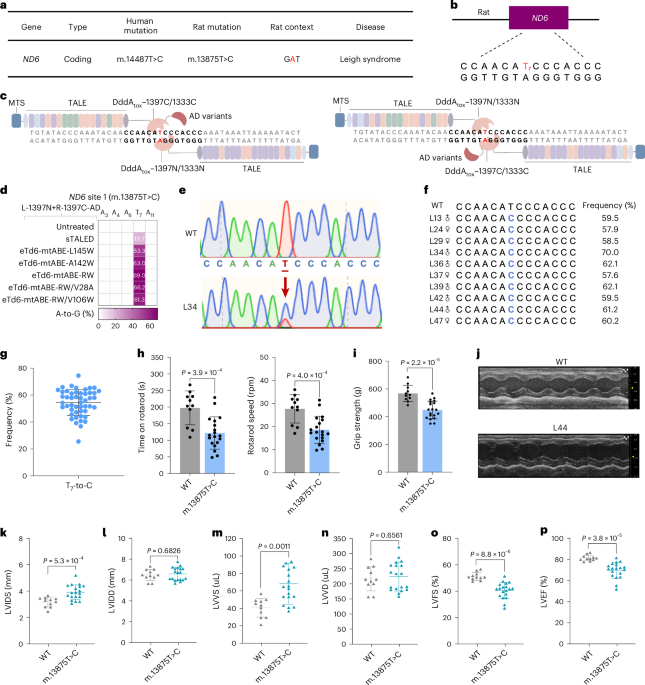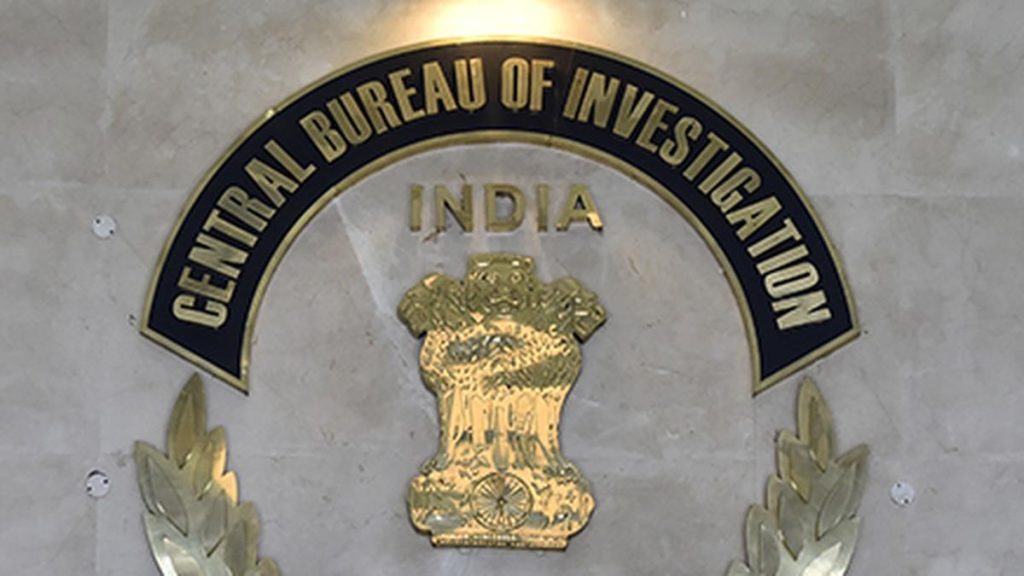Now Reading: Scientists Create and Correct Mitochondrial Disease Model in Rats Using Gene Editing
-
01
Scientists Create and Correct Mitochondrial Disease Model in Rats Using Gene Editing
Scientists Create and Correct Mitochondrial Disease Model in Rats Using Gene Editing

Quick Summary:
- Research findings related to mitochondrial DNA editing and models of mitochondrial disease have been published.
- Data has been made publicly available on the National Center for Biotechnology Information Sequence Read Archive under accession code PRJNA1252023,ensuring unrestricted accessibility.
- The reference section includes several key studies discussing progress in base editing technologies, mechanisms, and diseases associated with mitochondrial genomes.
Indian Opinion analysis:
The open accessibility of high-throughput sequencing (HTS) data enables researchers across the globe to explore advancements in genetic engineering within mitochondrial contexts. For India, this signifies potential collaborative avenues in biotechnology research and innovation. It provides an chance to enhance genetic disease treatments domestically by leveraging these insights through partnerships among Indian institutes and global entities.
Moreover, while notable strides are being made globally in precision medicine techniques such as base editing for mitochondria-linked disorders, India must evaluate scaling it’s own infrastructure for biotechnological research. This step could position itself not merely as a consumer but also as a contributor to transformative biomedical advancements tailored to diverse populations.quick Summary
- The article discusses advancements in mitochondrial genome editing, focusing on techniques and tools developed for precision and efficiency.
- Notable innovations include CRISPR-free base editors, adenine transversion editors, and DNA-binding protein fusions that enhance targeting accuracy.
- While promising for addressing mitochondrial diseases like Leigh syndrome, concerns remain about potential nuclear off-target effects.
- Research spans applications in mammalian cells and embryos, with ongoing exploration into minimizing risks associated with genome editing technologies.
Indian Opinion Analysis
Advancements in mitochondrial genome editing represent a significant step forward for medical science globally. For India, where genetic disorders contribute to ample healthcare burdens, these breakthroughs offer hope for mitigating challenges related to hereditary diseases like Leigh syndrome or progressive myoclonic epilepsy. Though, it is indeed imperative to balance excitement about the technology with caution surrounding its ethical implications and safety-notably in light of detectable nuclear off-target mutations reported in studies cited by the article. India’s healthcare system will need robust frameworks integrating scientific innovation while ensuring equitable access and ethical governance of practices stemming from such research.
Read more: https://doi.org/10.1038/s41587-025-02685-xQuick Summary
- The article discusses scientific advancements involving the creation and correction of a mitochondrial disease model in rat zygotes using engineered base editors.
- the research was conducted by a team based in multiple institutes across China, including Lingang Laboratory and East China Normal University.
- Funding for the study came from various chinese programs such as the National Key R&D Program, National Natural Science Foundation, and municipal innovation schemes.
- Several authors contributed equally to this work, emphasizing collaboration among experts from different fields like genome editing and cell therapy.
- Patent applications have been filed based on results from the study; other competing interests were not disclosed by most participating authors.
Indian Opinion Analysis
The research outlined represents a significant milestone in biotechnology with implications extending far beyond its immediate findings on mitochondrial disease modeling and editing techniques. For india, this advancement highlights areas where further investment into genome editing capabilities could catalyze progress in healthcare solutions to combat genetic diseases locally while contributing globally to innovation ecosystems.
Funding openness within collaborative projects-like those detailed here-provides an example for indian scientists pursuing large-scale interdisciplinary ventures that depend upon public-private synergy or government grants similar to China’s structured support systems.
As global leaders push boundaries on gene-editing ethics (given patents filed), fostering dialog on India’s regulatory framework is essential to balance scientific exploration with societal responsibility amid emerging medical breakthroughs around genetic interventions impacting human health comprehensively but cautiously over time.Quick Summary:
- Scientists have developed a mitochondrial disease model using engineered base editors in rat zygotes.
- The research represents advancements in genetic editing, focusing on correcting mutations linked to mitochondrial diseases.
- The study was published in Nature biotechnology on June 3, 2025.
indian Opinion Analysis:
This groundbreaking research highlights the growing potential of genetic engineering to tackle hereditary and mitochondrial diseases. For India,where genetic disorders pose significant healthcare challenges due to the large population base and diverse genetic profiles,advancements like these could pave the way for more targeted medical interventions. Encouraging scientific collaborations and investments in genomic studies could significantly bolster India’s healthcare system while positioning it as a hub for biotech innovation globally.Read More


























